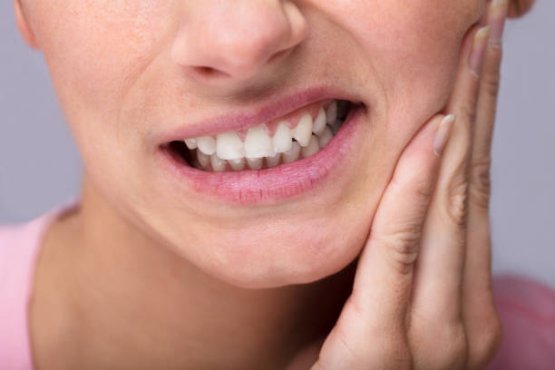What is tooth sensitivity and how is it treated?

As we get older, or sometimes younger, many people can experience tooth sensitivity to hot, cold, spicy or acidic foods and drinks. Approximately 68% of adults worldwide suffer from this condition and it is called "dental hyperesthesia". Women may be more sensitive than men. Those who feel excessive sensitivity in their teeth should seek help from dentists.
What is tooth sensitivity (hyperesthesia)?
Tooth sensitivity (dental hyperesthesia) is a painful sensitivity that usually occurs in non-decayed teeth or in cases of chronic periodontitis (long-term gingivitis). In cases where tooth sensitivity occurs, temperature changes, chemical effects or physical contact can cause a painful reaction in the patient. Conditions such as enamel erosion and tooth neck exposure can cause hyperesthesia and patients often experience pain when consuming spicy, sweet or salty foods.
With timely intervention and appropriate treatment, tooth sensitivity can be controlled. With the identification of the factors causing hyperesthesia and an effective treatment plan, patients can have a healthy dentition without pain and discomfort. Taking preventive measures can prevent the development of tooth sensitivity and is important for long-term oral health. It should not be forgotten that in most cases of tooth sensitivity, a professional dental examination is required instead of temporary solutions.
What are the Causes of Tooth Sensitivity?
The causes of tooth sensitivity can be considered under two headings as caries-related causes and other causes. We can list the reasons not related to tooth decay as follows:
- Non-Carious Lesions: Malocclusion and bruxism can cause premature wear, thinning and microcracks in the tooth enamel.
- Mechanical Damage to Dentin: Enamel can be damaged due to practices such as using too hard toothbrushes and uncontrolled use of whitening paste. Eating habits such as nuts, seeds or bread crumbs can also have negative effects on enamel.
- Mineral and Salt Deficiency in Tooth Enamel: Leaching of calcium, phosphorus and other trace elements can cause the tooth surface to lose its density.
- Unbalanced Nutrition: If the vitamins and minerals necessary for dental health are not taken in sufficient amounts, enamel health may be adversely affected.
- Hormonal Imbalance: Hormonal changes during pregnancy or menopause can trigger demineralisation of tooth enamel.
- Poor Hygiene: Irregular and poor quality hygiene habits can negatively affect tooth enamel by causing tartar formation. It creates an environment where pathogenic microorganisms that can dissolve tooth enamel are harboured.
- Effects of Organic and Inorganic Acids: Citrus fruits, sour fruits, natural fruit juices, sugary sodas and sweets are among the foods and drinks with acid content that can damage tooth enamel.
Hypersensitivity can occur in cases of moderate to deep tooth decay. In this case, the top layer of dentin is damaged. Sensitivity can occur in cases of pulpitis (advanced or incompletely treated caries), periodontal disease or periodontitis.
Symptoms of Tooth Sensitivity
Hyperesthesia manifests itself differently in all patients. Most of the time, patients complain of short-term but very severe pain. Sensitivity can be particularly pronounced when consuming spicy, sweet or salty foods, hot and cold dishes.
In some patients, severe pain may occur even when breathing cold air. In such cases, the pain associated with sensitivity is almost constant and, even if it goes away, it is very short-lived. The patient cannot clearly identify the offending tooth because the discomfort is usually not localised. The enamel is not visually damaged, there is no visible difference between the teeth and there is no pigmentation.
Tooth Sensitivity Treatment
Hyperesthesia treatment is a process that depends on both the doctor and the patient. Each treatment plan is tailored to the patient's condition and includes clinical procedures performed by the dentist as well as the patient's attention to dental and oral care.
Methods used to treat the discomfort include fluoride applications, remineralisation and desensitisers. Medications used in the treatment of hyperesthesia include various substances that aim to close the dentinal canals and block nerve fibre signalling.
For the treatment of tooth sensitivity, support from a dentist should be obtained in almost all cases. However, there are some points that patients should pay attention during and after the treatment process. Eating and drinking habits recommended by the dentist should be followed, a balanced diet should be followed, teeth should be brushed regularly and regular dentist controls should be performed. The frequency of the controls will be determined by your dentist. Limiting foods that can damage teeth, consuming foods containing phosphorus and calcium, and taking care of oral care are also among the preventive steps.
